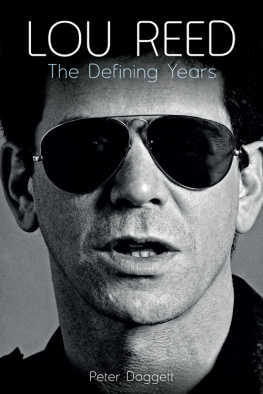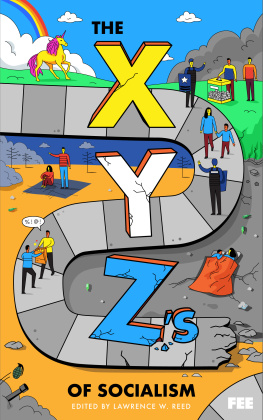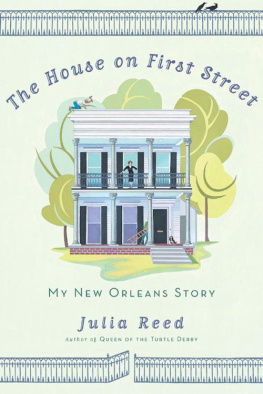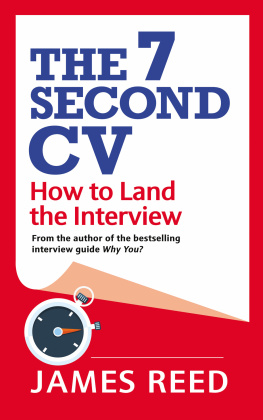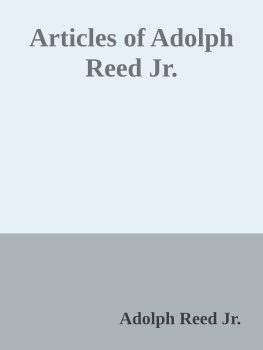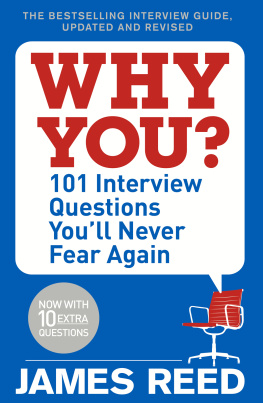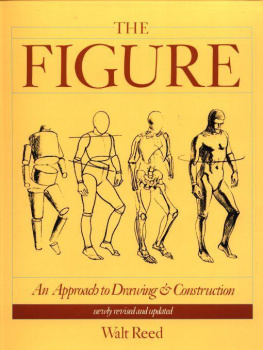I Love Mondays
The autobiography of Alec Reed
Alec Reed, Serial Entrepreneur
Businesses Reed Employment (1960)
Reed Executive (1961)
D. Eyre & Partners (1963)
Club Pass (1966)
ICC (Inter Company Comparisons) (1967)
Dial a Job (1968)
Medicare (1973)
reed.co.uk (1995)
Reed in Partnership (1998)
Charities
Reed Business School (1972)
Addicts Rehabilitation (1973)
Womankind (1989)
Ethiopiaid (1989)
Reed Re-start (1995)
West London Academy (2002)
The Big Give (2007)
I Love Mondays
The autobiography of Alec Reed
Alec Reed
with Judi Bevan

First published in Great Britain in 2012 by
Profile Books Ltd
3a Exmouth House
Pine Street
Exmouth Market
London EC1R 0JH
www.profilebooks.com
10 9 8 7 6 5 4 3 2 1
Copyright Alec Reed 2012
The moral right of the author has been asserted.
All rights reserved. Without limiting the rights under copyright reserved above, no part of this publication may be reproduced, stored or introduced into a retrieval system, or transmitted, in any form or by any means (electronic, mechanical, photocopying, recording or otherwise), without the prior written permission of both the copyright owner and the publisher of this book.
A CIP catalogue record for this book is available from the British Library.
ISBN: 978 1 84668 516 3
eISBN: 978 1 84765 767 1
Text design by Sue Lamble
sue@lambledesign.demon.co.uk
Typeset in Photina by MacGuru Ltd
info@macguru.org.uk
Printed and bound in Great Britain by
Clays, Bungay, Suffolk
The paper this book is printed on is certified by the 1996 Forest Stewardship Council A.C. (FSC). It is ancient-forest friendly. The printer holds FSC chain of custody SGS-COC-2061

Contents
To Adrianne, my soulmate.
And to Rosie, Tessa, Harry, Patrick, Joe, Hazel,
Aidan, Molly, Tabitha, Lily, Christie
and their parents.
Occupied in these reflections, as he was making his way along one of the great public thoroughfares of London, he chanced to raise his eyes to a blue board, whereon was inscribed, in characters of gold, General Agency Office; for places and situations of all kinds inquire within. It was a shop-front, fitted up with a gauze blind and an inner door; and in the window hung a long and tempting array of written placards, announcing vacant places of every grade, from a secretarys to a foot-boys. Nicholas halted, instinctively before this temple of promise he made up his mind and stepped in.
From Nicholas Nickleby by Charles Dickens
Chronology
16 February 1934: Born in Hounslow
1950: Starts work at Tozer, Kemsley and Milbourn
1954: Qualifies as a Chartered Secretary
1955: Joins Gillette
May 1960: Opens first employment agency
16 September 1961: Marries Adrianne Eyre
1963: Qualifies as a Chartered Management Accountant
January 1971: Floats Reed Executive on Stock Exchange
1972: Founds Reed Charity, forerunner of Reed Foundation; starts Reed Business School; number of Reed branches hits 100
1973: Turnover tops 10 million for first time; AR launches Medicare chain of drug stores
1977: Reed profits top 1 million for first time
1985: Sells Medicare to Dee Corporation for 20 million
1987: Visits Ethiopia for first time; made Professor of Enterprise and Innovation at Royal Holloway College, University of London
1989: Founds Ethiopiaid and Womankind charities
1993: Honoured as a fellow of CIPD (Chartered Institute of Personnel and Development)
1994: Awarded CBE
1995: Launches reed.co.uk, internet recruitment site
1995: Starts Reed Learning in Windsor
1997: Son James Reed becomes chief executive
1998: Reed in Partnership launched
1999: Profits top 20 million for first time; AR becomes Founder at Large
2002: Publishes Capitalism Is Dead: Peoplism Rules
2003: Reed Executive taken private
2005: Reed Health bought back into Reed Executive
2007: Launches The Big Give, internet charity site
2011: Receives Knight Bachelor for services to business and charity
Prologue
I HAVE ALWAYS HAD A HEAD FULL OF IDEAS. My brain is like one of those machines that shoot balls into the air at fairgrounds. Some of those balls get caught and win prizes: others just fall to the ground. Every day for more than fifty years I have come up with something. Many of my ideas were trivial and silly and didnt come to much, but enough of them did. Opening my first employment agency was like backing a roulette number and it coming up. That happens rarely, but in business, if you get an idea right, the winning number keeps coming up. From the moment I opened my first employment agency I never missed my salary from Gillette, where I had worked for four years. Gillette became my first client, and gave me back that salary many times over in fees.
People often ask me what made me entrepreneurial. Was it growing up amid the uncertainty of war, when you never knew if the next doodlebug was going to fall on you or if the next air raid would be your last? I dont think so. Millions of children lived through those experiences and did not become entrepreneurs. The war made most people risk averse; they wanted secure jobs in big firms with good wages and guaranteed pensions and there were plenty of those jobs going in the two decades after the war. That is what made the recruitment business so profitable.
As a child my motivation mostly came from trying to keep up with my big brother John who was four years older than me. He was a big influence when we were younger. My mother was always separating us. If we were fighting, I was obviously going to get the worst of it eight versus four, or six against ten or whatever. But he led the way. He had an entrepreneurial streak fired by the desire to escape the financial constraints of our childhood. I desperately wanted to keep up with him. As I grew older, I had a burning desire to show that I was as good as him.
I was five when the war started, and the hardships and excitement certainly encouraged John and me to be enterprising. Our first venture was making and selling lead soldiers. Then we started another little business, personalising greetings cards. I dont remember being competitive about my schoolwork but I have always wanted to win whatever game I played, whether tennis or cards.
Even more compelling than the will to win has been the need to be in control of my own destiny. That is what made me leave my safe, well-paid job at Gillette when I was 26. While the management welcomed some of the ideas that popped out of my head I had no control over what happened to them. When I left I had only two goals first to run my own business, and second to make enough money to equal my salary of 900 a year.
The ambition to expand the business, to overtake my rivals and become the market leader, came later.
Plenty of people have good ideas, but they never follow them through because they lack energy or confidence. My parents my mother in particular gave us tons of confidence by always taking our side. I like people, so I have never had trouble getting on with those around me and confidence helped me to persuade them to do things my way.
Next page



